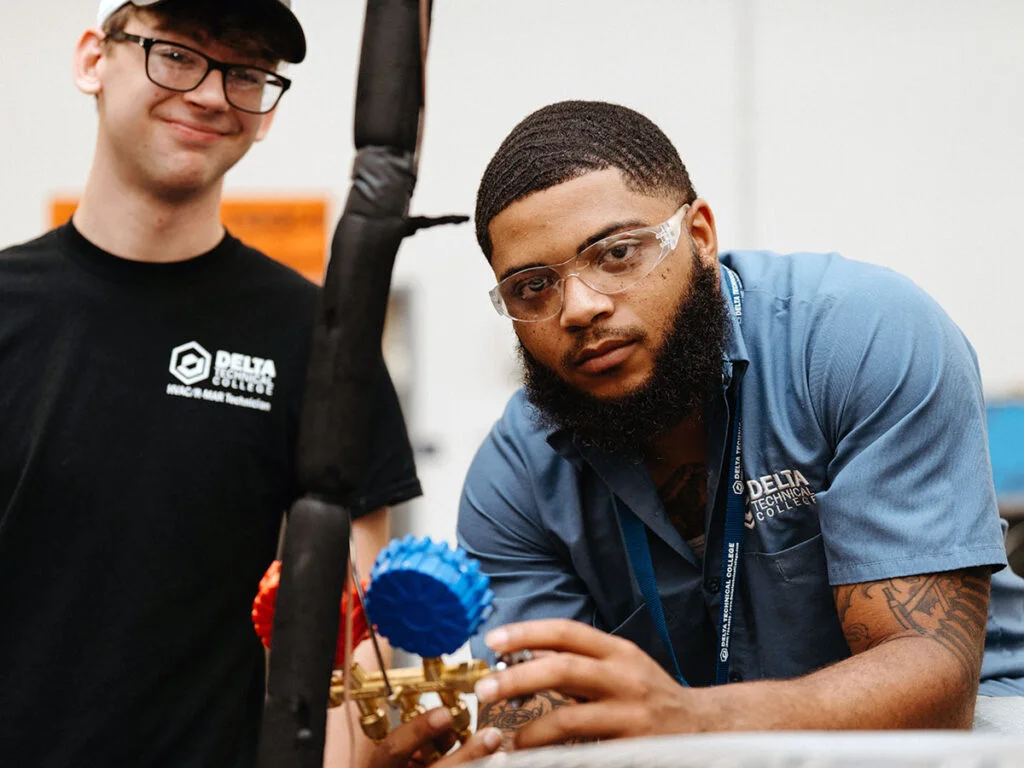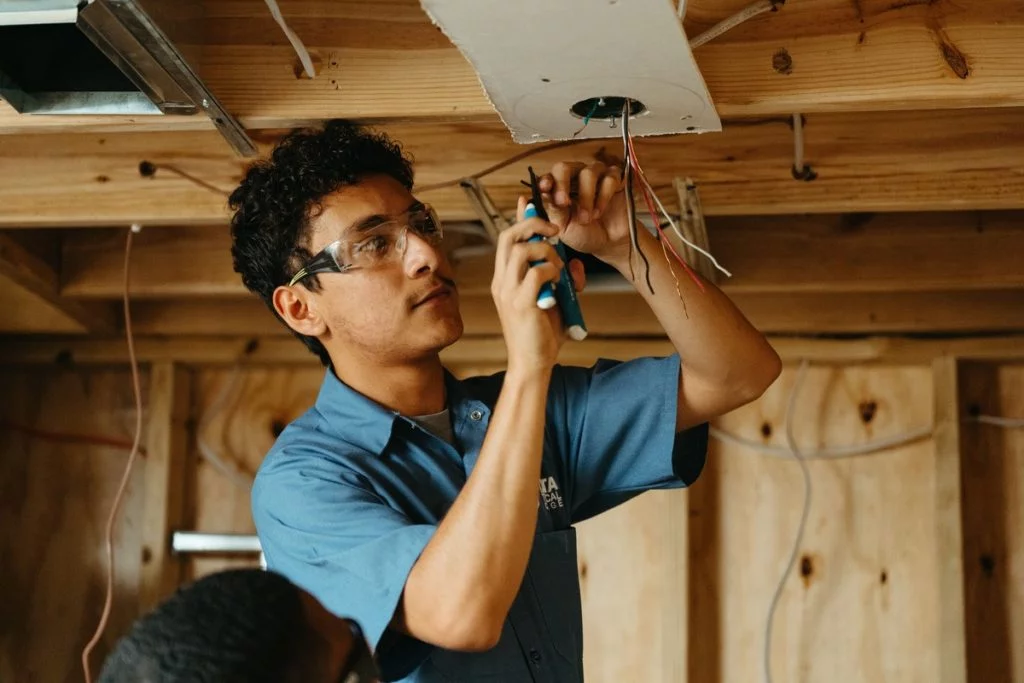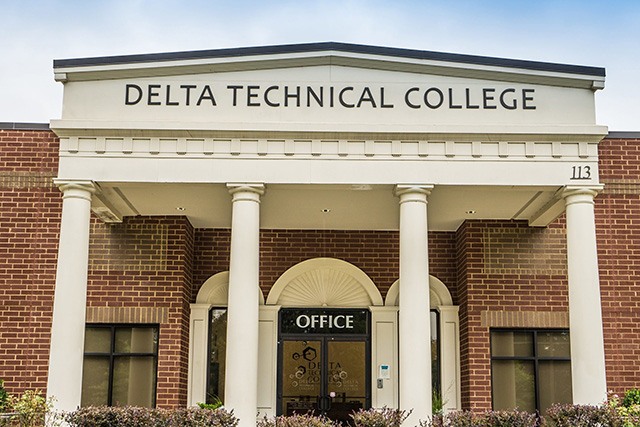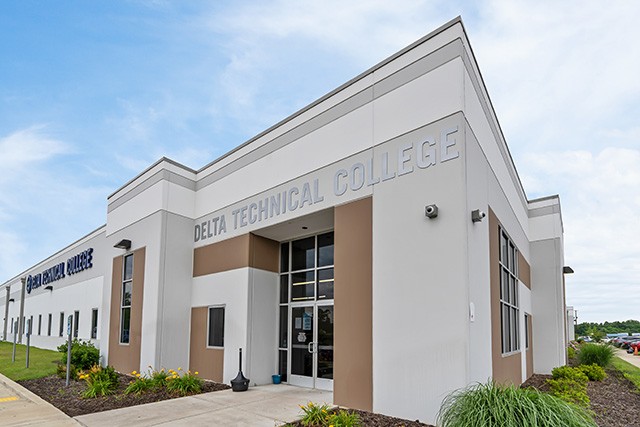Ready to Learn More?
DTC is Here to Help
DTC’s Admissions Team will reach out to answer any questions you have and share next steps!
What Makes DTC'S (I/C/R) Electrician Program Different?
Hands-On Focused
Labs that simulate real working environments
Accelerated Training
Complete your I/C/R Electrical training in just 7 months
Experienced Instructors
All DTC I/C/R Electrical instructors have real-world experience

Daytime Classes Available
Flexible class times that work for your busy schedule
Employment Preparation
No general education courses required, students will learn the skills required for entry-level employment
Career Placement
Career counseling & placement assistance is available to all qualified graduates

HANDS-ON (I/C/R) ELECTRICIAN CLASSES
Basic Electrical Theory | Mathematics | Wiring | Load Calculations | Motors & Electrical Controls | Field & Shop Safety
The electrician instructors at DTC bring real-world laboratory experience to the classroom, providing hands-on medical instruction and one-on-one interaction to help you develop essential electrician skills.
In DTC’s hands-on (I/C/R) electrician classes, you’ll learn:
- Electrical Theory/NEC/Grounding
- Meters/Lighting/Blueprints
- Electrical Mathematics/Conduit Bending
- Conduit Bending/Terminations/Standby Systems
- Overcurrent Protection/3 Phase Dist/Load Calc.
- Motors/FA Systems/VDV/Controls
DTC’s (I/C/R) electrician training classes give you the technical skills you need to install, maintain, and troubleshoot a variety of electrical systems, and enter the I/C/R Electrician workforce prepared for an entry-level career.
Ready to Learn More?
Ready to learn more about DTC’s hands-on training programs? Give us a call or fill out the form to get more information.
Financial Assistance

DTC’s Financial Aid Team provides personalized support to students applying for federal financial aid and help with understanding all the funding options, including scholarship opportunities.
Scholarship Opportunities

DTC is here to help you attain the funding you need to take the next step in your education. DTC’s Financial Aid Team can help match you with scholarship opportunities you may qualify for.

Ready to Learn More?
Ready to learn more about DTC’s hands-on training programs? Give us a call or fill out the form to get more information.
Get StartedFIND AN (I/C/R) ELECTRICIAN SCHOOL NEAR YOU
(I/C/R) Electrician Training Program Overview
Are you interested in becoming an industrial electrician, commercial electrician, or residential electrician? Here’s what you can expect when you attend Delta Technical College (DTC) for your (I/C/R) electrician training:
QUICK FACTS: (I/C/R) ELECTRICIAN PROGRAM
WHAT IS AN (I/C/R) ELECTRICIAN?
According to the U.S. Bureau of Labor Statistics, electricians “install, maintain, and repair electrical power, communications, lighting, and control systems.”
For additional information on this skilled trade, check out: How to Become an Electrician?
HOW MUCH DO ELECTRICIANS MAKE?
According to the U.S. Bureau of Labor Statistics, the median annual wage for electricians in May 2023 was $61,590. The highest 10 percent of electricians earned more than $104,180.
WHERE CAN I WORK AS AN ELECTRICIAN?
(I/C/R) electrician program students are trained to work inside or outside, answering service calls or work on jobs at any residence or business requiring the installation, repair, or maintenance of an electrical system. There can be some travel between jobs. The U.S. Bureau of Labor Statistics notes that the majority of electricians work as contractors.
HOW MUCH DOES DTC’S ELECTRICIAN PROGRAM COST?
For more information on DTC program costs, please contact Financial Aid or visit Tuition & Cost.
The BLS projects employment of electricians to grow 11% from 2023 to 2033, faster than the average for all occupations (4%).
Enrollment & Outcomes
Enrollment and outcome information for all Mississippi-based campuses and the ACCSC annual reports for each program in Adobe PDF format. Please note, all programs are not offered at all campuses. For annual details, please visit our I/C/R Electrician Program Enrollment and Outcomes.
Accreditations
- DTC is accredited by the Accrediting Commission of Career Schools & Colleges (ACCSC).
- DTC is approved by the U.S. Department of Education to participate in federally-funded financial aid programs.

Delta Technical College is licensed by the Mississippi Commission on Proprietary Schools and College Registration, Certificate No. C-624. Licensure indicates only that minimum standards have been met; it is not an endorsement or guarantee of quality. Delta Technical College is authorized for operation as a postsecondary educational institution by the Tennessee Higher Education Commission.
Licensure indicates only that minimum standards have been met; it is not an endorsement or guarantee of quality.
Delta Technical College is authorized for operation as a postsecondary educational institution by the Tennessee Higher Education Commission.


